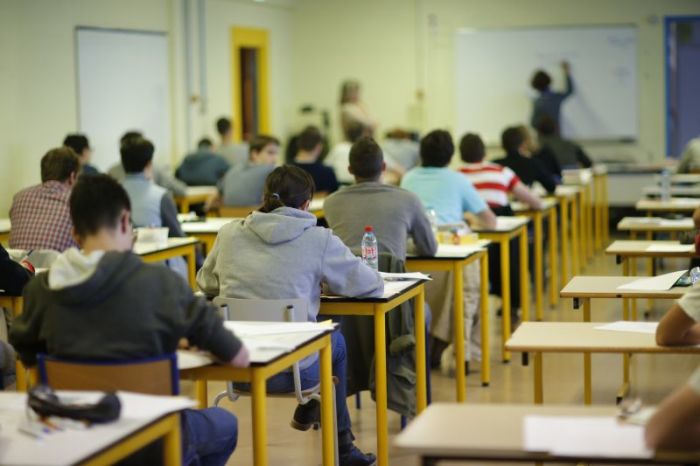Arizona's new school choice law expected to survive petition drive

Opponents of Arizona's school voucher law have reportedly failed to file enough valid signatures to overturn the recently passed measure deemed to be one of the most robust school choice policies in the United States.
Beth Lewis, executive director of public school advocacy group Save Our Schools Arizona, which opposes school choice policies, announced Friday that she and her group had filed a petition against Arizona's Empowerment Scholarship Account program.
The program ensures all K-12 students are eligible for scholarship funds and receive help toward educational expenses through the state. Families can receive over $6,500 per year per child for private school, homeschooling, micro schools, tutoring or other educational services. The school choice law, said to be the most robust in the nation, faced opposition from teachers' unions.
The petition's goal was to temporarily halt the program and put the measure on the ballot for voters to decide in 2024.
It was initially reported that Lewis' group collected more than 140,000 signatures, more than the 118,823 signatures required. However, an organization supporting the school choice policy reported Monday that based on petition sheets released by the Secretary of State's office, only 88,866 signatures were submitted.
"The tremendous shortfall in signatures is apparent based on the petition sheets made available by the Secretary of State's office, which is due to make a final determination on the effort," a statement from the libertarian think tank Goldwater Institute reads.
Lewis told The Associated Press that she is "incredibly disappointed with the numbers" but is waiting on "accurate numbers" from the Secretary of State's office.
Goldwater Institute CEO Victor Riches says the preliminary result suggests that "Arizona families have rejected special interests' attempts to take away their ability to choose the education that best meets their child's unique needs."
"Families deserve the right to choose the best education option for their children, regardless of zip code, and now, they'll once again be able to exercise that right by applying for ESAs," Riches said.
In an interview with Salon, Lewis claimed that groups like American Federation for Children and the conservative Goldwater Institute have signaled "massive legal battles" over the petition and validating signatures.
Petitions are often challenged to check for issues such as incomplete addresses and duplicate signatures.
The Save Our Schools group ran a similar referendum campaign against a universal voucher law in 2018, in which it gathered around 118,000 signatures, more than the 76,000 required. Lewis claimed that Arizona Gov. Doug Ducey's recent expansion of the state Supreme Court and new restrictions requiring petitioners gather a certain percentage of signatures from each county required them to collect more than in 2018.
After it was reported that Save Our Schools gathered enough signatures, Jason Bedrick, a research fellow at the national conservative think tank The Heritage Foundation, argued in a Friday Twitter thread that Lewis and her group celebrated too early.
Citing Ballotpedia, Bedrick noted that the group obtained around 140,000 signatures when the average validity rate is around 70%, meaning they would have had to have obtained around 150,000 signatures. The research fellow claimed that Save Our Schools would need an 84% validity rate.
Bedrick believes the "greatest hurdle" to the petitions is that most parents in the state favor school choice, pointing to a recent Morning Consult poll. According to the survey, 66% of Arizonians and 75% of parents with school-age children said they support ESA.
The survey contained a sample size of 621 people, and 295 were parents with school children.
Arizona adopted the ESA program in July, ensuring all K-12 students are eligible for scholarship funds. The legislation was sponsored by Arizona House Majority Leader Ben Toma, a Republican, and signed by Gov. Ducey earlier this summer.
"This is a monumental moment for all of Arizona's students. Our kids will no longer be locked in underperforming schools. Today, we're unlocking a whole new world of opportunity for them and their parents," Gov. Ducey said.
"With this legislation, Arizona cements itself as the top state for school choice and as the first state in the nation to offer all families the option to choose the school setting that works best for them," he continued.
"Every family in Arizona should have access to a high-quality education with dedicated teachers."
In August, the nonpartisan research group Education Next reported that around 2 million fewer students are enrolled in public schools nationwide since the spring of 2020 when in-person learning ceased during the pandemic.
From 2020-2022, public school enrollment declined from 81% to 76.5%, while charter school enrollment increased from 5% to 7.2%. In addition, private school enrollment increased from 8% to 9.7%, and homeschooling rose from 6% to 6.6%.




























